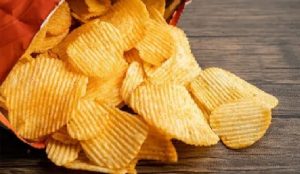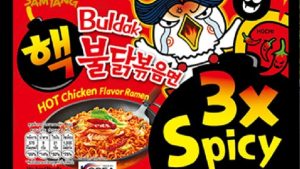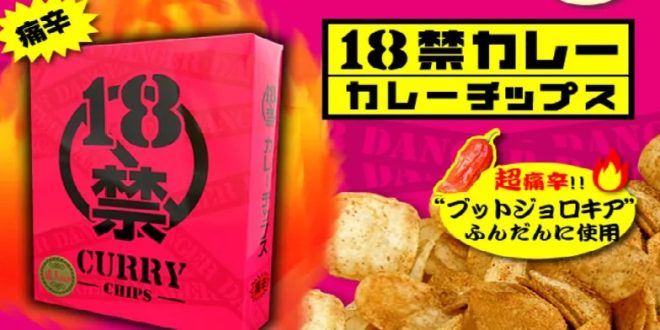19-07-2024
TOKYO: Fourteen high school students in Tokyo were admitted to hospital after eating “super spicy” potato crisps, police said.
Around 30 students ate the fiery snacks after one of them brought them to school on Tuesday, Japanese local media reported.
 Soon, some of them started complaining of nausea and acute pain around their mouth, prompting emergency calls to the fire department and police.
Soon, some of them started complaining of nausea and acute pain around their mouth, prompting emergency calls to the fire department and police.
The 13 girls and one boy who were taken to hospital were conscious and reportedly had minor symptoms.
The company that makes the snack, Isoyama Corp, put out a statement, apologizing for “any inconvenience” to customers, and wished the students a swift recovery.
The school and the company have not responded to the BBC’s questions so far.
The company website is full of warnings for those who may wish to try the crisps.
It “forbids” those under 18 from consuming the crisps which are called “R 18+ curry chips”, because of how spicy they are – and it warns even those who love hot food to “eat with caution”. The crisps are “so spicy that they may cause you pain”, it says.
The spiciness comes from the potent “ghost pepper”, cultivated in northeastern India, where it’s known as bhut jolokia. Although it is used in recipes in India and elsewhere, it’s known to be among the world’s hottest chillis.
The Japanese firm, in fact, advises people not to “eat the chips when they are alone” and says they could cause diarrhea if eaten “excessively”.
Those with high blood pressure and weak stomachs “are absolutely prohibited” from eating the crisps, according to the company’s website. It warns people who have cuts on their fingers to be careful while opening the packets.
Those who are “timid or too scared” are also discouraged from trying the snack.
 One media report said one of the students, a boy, brought the crisps to school “just for fun”.
One media report said one of the students, a boy, brought the crisps to school “just for fun”.
Responding to news about the hospitalizations, some X users posted a “spicy meter” to demonstrate how hot the crisps were, while others shared videos of their agonizing experience of eating them.
In one video, a user who appears to be wincing, described it as “painful” and said it reminded him of the time he had urinary stones.
X owner Elon Musk also weighed in, saying “they must be next-level spicy!”
Ramen noodles have been banned in some European countries for containing too much of the chilli extract capsaicin. Can it really be a danger to health?
A South Korean brand of instant ramen made headlines recently when Denmark’s food agency recalled some flavors of the product due to the risk they may cause “acute poisoning”.
Another story to make headlines recently was the case of a teenager in the United States with underlying health conditions who reportedly died after taking part in a spicy food challenge.
The cause of these concerns is capsaicin, the active component of chilli peppers that gives them their hot taste but are the Danish authorities right to be so cautious? Is it really possible to eat so much capsaicin that it can poison you?
Capsaicin is a compound that gives chillis their hot taste and the burning feeling we can get when we eat them. It is one of a family of compounds called capsaicinoids. Although around 23 different capsaicinoids have been found in chilli peppers, the most potent of these is capsaicin although it has a similar level of pungency as a similar molecule called dihydrocapsaicin, which is generally found in lower concentrations in chilli peppers. (Int’l Monitoring Desk)
 Pressmediaofindia
Pressmediaofindia




